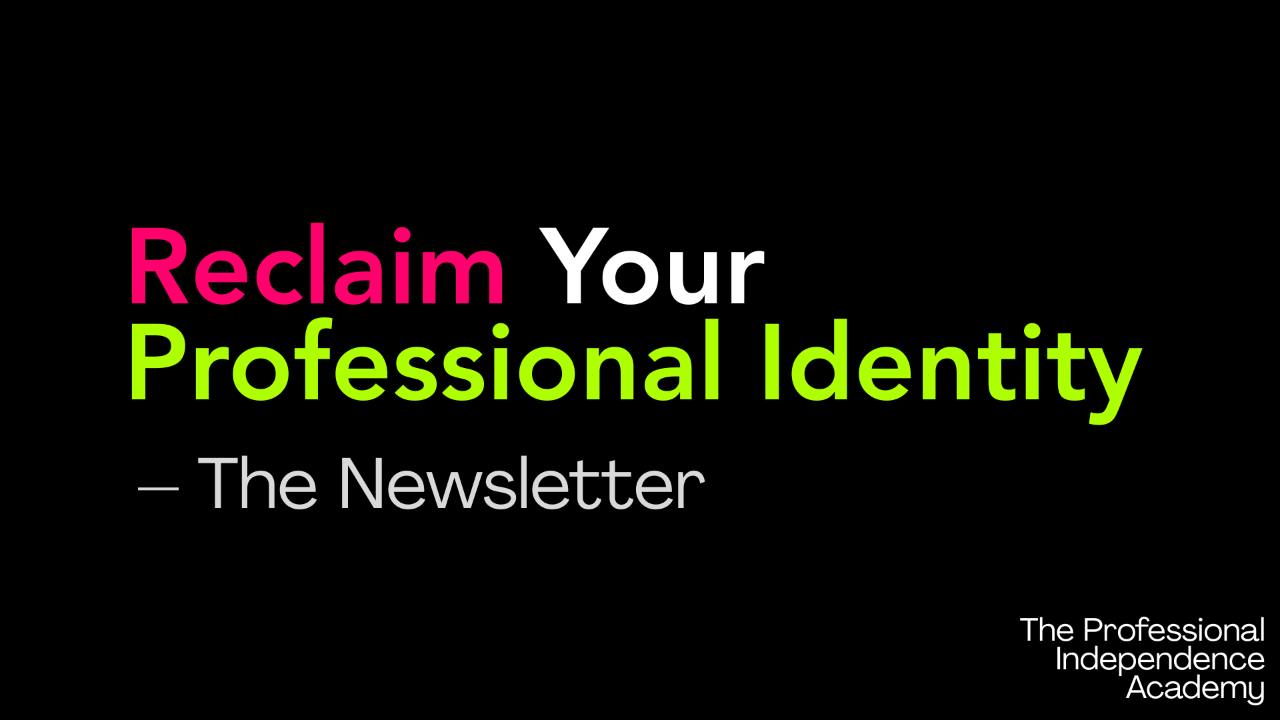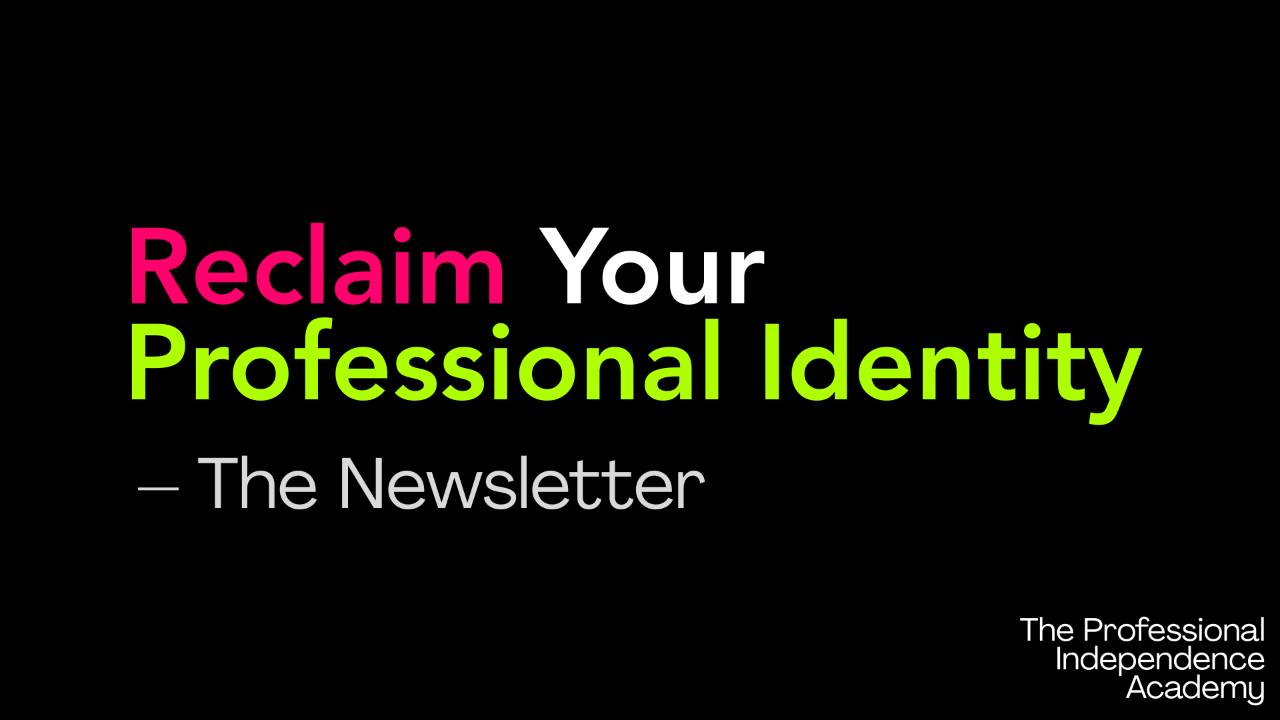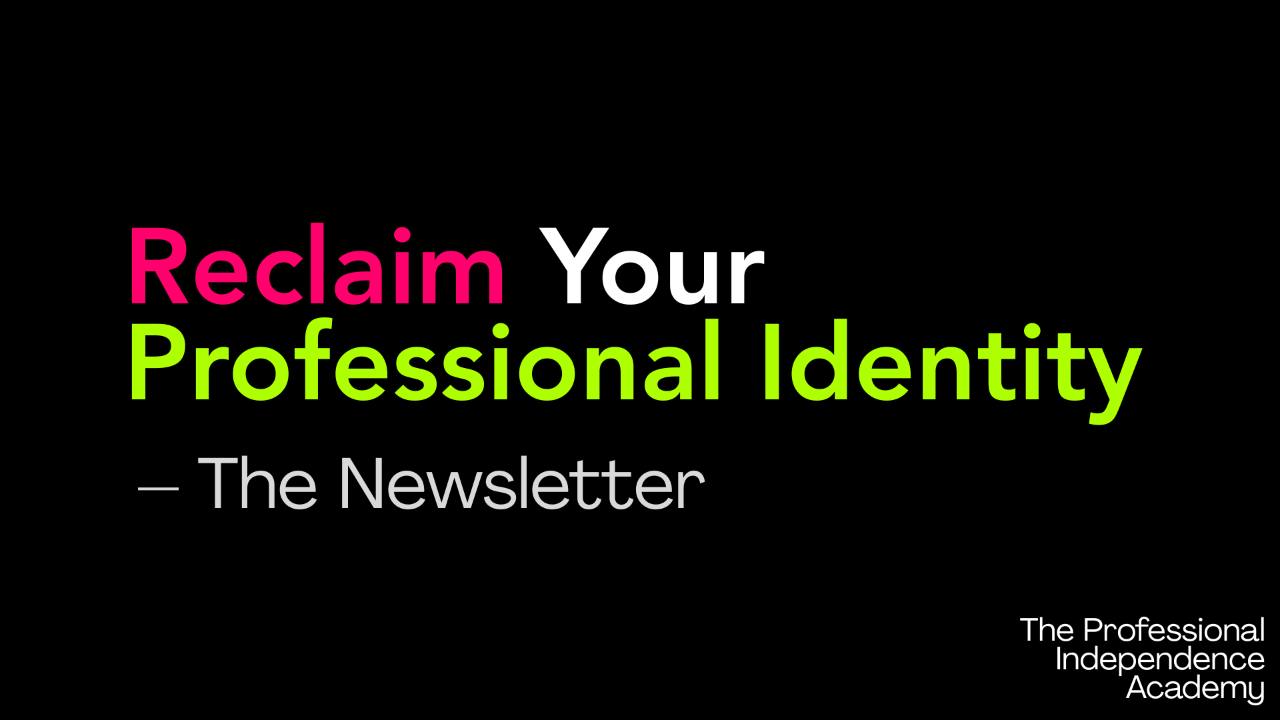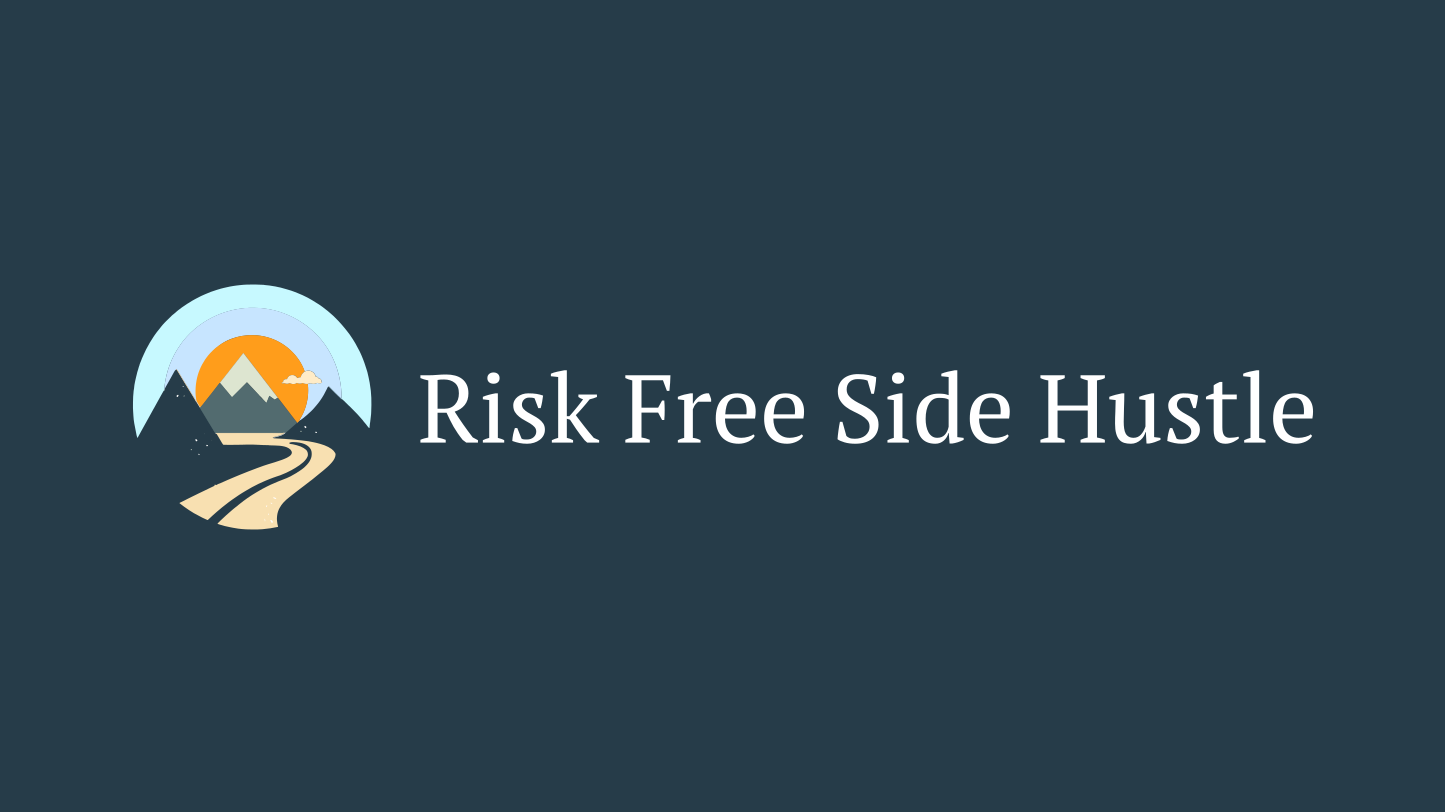
Reclaim Your Professional Identity
Whether you're looking to land that next job, build resilience against today's layoff culture, or create the perfect launch pad for a business of your own, it's time to take back control of your professional identity.
 72. The Hidden Job Market Is Real, Here's How to Access It
72. The Hidden Job Market Is Real, Here's How to Access It
Read time: 5 minutes | Forward to a friend
You find the perfect job posting. You update your resume. You polish your cover letter. You click "apply."
Then you join 347 other applicants in what I call the ATS black hole.
Crickets.
If you've ever felt the gut-punch of silence after submitting what you thought was a perfect application, you're not alone. But here's the question that changed every...
 71. Stop Auditioning, Start Evaluating: How to Interview the Interviewer
71. Stop Auditioning, Start Evaluating: How to Interview the Interviewer
Read time: 5 minutes | Forward to a friend
Several times in my career I've walked into an interview so focused on proving I was "the one" that I completely forgot to ask whether this company deserved me. Weeks later, right on cue, I would find myself staring at my screen wondering how I'd missed every warning sign. The truth? I hadn't missed them. I'd just never been taught to look.
How did we...
 70. You Don't Need to Be an Influencer — You Just Need to Be Findable
70. You Don't Need to Be an Influencer — You Just Need to Be Findable
Read time: 5 minutes | Forward to a friend
A few years ago, I watched a talented colleague get laid off. She was brilliant at her job, but when she started looking, almost nobody in her industry knew her name. Meanwhile, another colleague who'd been casually commenting on LinkedIn posts for months? He had three conversations with hiring managers within a week... Same talent. Wildly different o...


